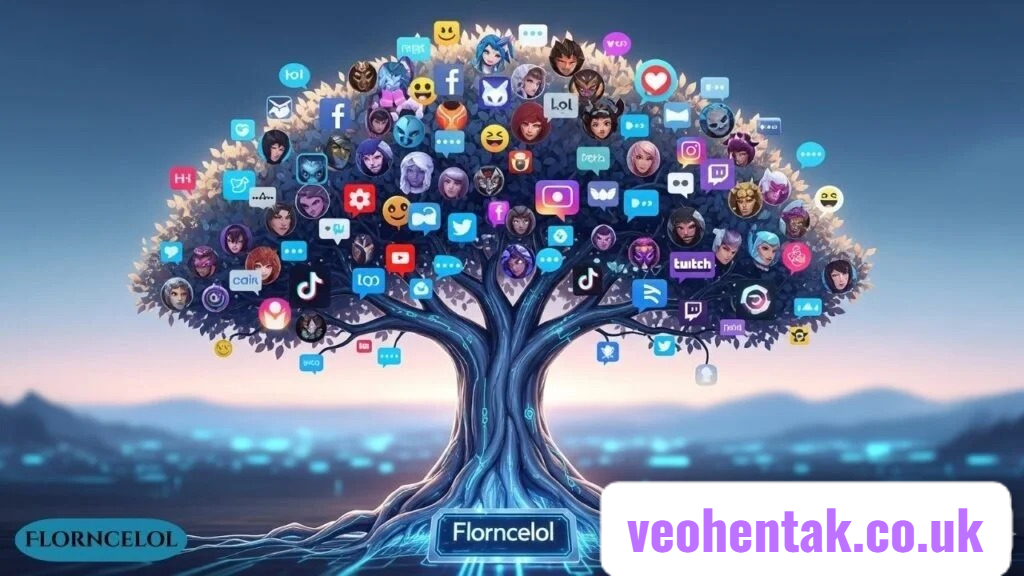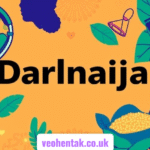Florncelol symbolizes the rise of creative digital identity—where usernames, avatars, and online expressions define who people are across platforms. It highlights how individuals build personal meaning and recognition in virtual spaces, shaping their social presence through unique digital names instead of traditional real-world identifiers.
The concept of florncelol captures the evolution of identity in an internet-driven age. People are redefining who they are through virtual names, symbols, and avatars that reflect humor, creativity, and individuality. As online spaces grow more influential than physical ones, the idea of identity has expanded beyond reality. This exploration uncovers how naming trends, digital behavior, and social culture merge to create authentic self-expression in the modern online world.
The Evolution of Digital Selfhood in Modern Society
The digital revolution has reshaped how people understand identity. Once rooted in family names or social status, identity now lives in digital spaces. From social media to gaming, the usernames people choose define how they’re seen. This shift from physical recognition to online presentation has made personal expression more creative than ever before, allowing people to construct personalities that feel freer and more authentic.
Usernames as the New Cultural Signature
Usernames have become modern signatures—symbols that represent individuality and belonging. These names are not just digital tools; they are personal brands, often created with deep emotional significance. People combine words, humor, and cultural references to express personality. A single name can convey wit, values, and creativity, showing how online identities merge artistic expression with personal storytelling.
The Psychology Behind Online Naming Trends
Psychologists studying digital behavior note that choosing an online name involves introspection. People select words that reflect desired traits—confidence, mystery, or humor. Some prefer anonymity to explore freedom of expression. Others seek connection by mirroring community styles. The psychology behind naming reveals a human need for identity flexibility, where individuals can reimagine themselves without social limitations.
Internet Culture and the Birth of Virtual Personas
Digital communities have created vast ecosystems of creativity. On platforms like Reddit, Twitch, and TikTok, users form microcultures through shared humor, language, and trends. These communities thrive on self-expression. A creative username becomes an entry ticket to belonging. It’s not just about logging in—it’s about signaling understanding of shared culture, whether it’s gaming, art, or memes.
Linguistic Innovation in the Online World
Language on the internet evolves faster than anywhere else. Slang, abbreviations, and made-up terms continuously emerge, reflecting changing social values. Online names often fuse random syllables, emojis, or humor to reflect playfulness and individuality. Linguists consider this a “living language,” where digital words capture the pulse of modern identity. This creative fusion mirrors how humans adapt communication to ever-changing technologies.
Meaning and Symbolism in Digital Names
Names in virtual spaces often carry deeper meaning than meets the eye. They can encode emotions, memories, or cultural ties. A single online name may reference nostalgia, humor, or social commentary. While anonymity is common, identity still shines through linguistic choices. This balance—between concealment and expression—defines digital authenticity. It allows users to craft layers of meaning invisible in traditional communication.
Also read this: Darlnaija: The Heartbeat of Nigeria’s Digital Culture
The Power of Humor and Irony Online
Humor has become central to digital interaction. Whether through memes, usernames, or comments, people express intelligence and belonging by being funny. Irony serves as a form of digital literacy; only those fluent in internet culture understand it. The ability to craft a humorous or absurd name reflects participation in collective creativity. Humor, in this sense, becomes both armor and identity online.
Community, Belonging, and Shared Expression
Digital communities thrive when users share similar linguistic patterns or humor. Unique usernames help establish a sense of belonging. Online identities become badges of participation, signaling that one understands a culture’s rules and tone. People form friendships, alliances, and entire subcultures based on shared naming aesthetics. These micro-communities show how language binds people together in an otherwise fragmented digital world.
Authenticity in a Virtual World
Paradoxically, people often feel more authentic behind digital masks. Online anonymity allows users to express true emotions or controversial opinions without fear of judgment. Identity online becomes an experiment—a safe zone for creativity. This authenticity-through-anonymity dynamic explains why many find virtual communication more freeing than physical interaction. It offers a chance to define selfhood without external pressure.
Why Randomness Resonates Online
The internet thrives on unpredictability. Random combinations of letters or symbols feel authentic because they defy algorithmic control. Users create seemingly nonsensical names to express spontaneity and humor. This trend reflects cultural rebellion against structured marketing language. Randomness stands for individuality in a world dominated by algorithms and mass trends, representing the human desire to remain unpredictable and unique.
Traits of Effective Digital Identities
Certain qualities make digital names powerful and memorable:
- Creativity: Originality sets the foundation for recognition.
- Memorability: Short, unique, and rhythmic names stand out.
- Emotional Tone: Humor or mystery strengthens user connection.
- Relevance: The name’s style should fit the platform’s community.
These traits define the architecture of online identity, helping individuals create brands or personal symbols that persist across platforms.
The Balance Between Privacy and Exposure
Anonymity remains a defining characteristic of digital life. Many users adopt creative pseudonyms to guard privacy while remaining expressive. A username can reveal aspects of personality yet hide personal information. This careful balance between exposure and protection allows people to feel safe while being seen. As digital footprints expand, anonymity continues to safeguard individuality in a public online landscape.
Experimentation and Self-Reinvention in Virtual Spaces
The internet offers endless opportunities for reinvention. People shift between usernames, avatars, and communities to explore different aspects of identity. This fluidity mirrors psychological growth—the ability to experiment and evolve freely. Each new digital persona provides a different lens through which users experience themselves. The cycle of reinvention is not deception but creative evolution.
Usernames as a Modern Branding Tool
In today’s attention economy, usernames function as personal brands. Influencers, entrepreneurs, and gamers build recognition through consistent, memorable names. A powerful username acts as a digital signature—communicating tone, style, and credibility. Marketers analyze these naming patterns to predict audience engagement. In this sense, personal naming has transformed into strategic identity design, blending art with analytics.
The Future of Digital Identity and Expression
Technology continues to blur the lines between real and virtual worlds. With the rise of AI avatars and the metaverse, digital identity will evolve further. People may manage multiple personas across interconnected realities. Identity will become a fluid construct, adapting to emotional, creative, or professional needs. As digital life expands, language and naming will remain at the heart of self-definition and human connection.
Conclusion
In a rapidly digitizing world, florncelol stands as a symbol of creativity, anonymity, and belonging. It encapsulates how people now construct identity through language, culture, and humor rather than physical presence. As the boundaries between real and virtual dissolve, these names will continue shaping how humans express individuality. The story of online identity isn’t just about technology—it’s about the timeless need to define who we are in an ever-changing world.
Frequently Asked Questions (FAQs)
1. What does the term represent in online culture?
It reflects creativity and individuality within modern digital communities, showing how usernames express personal and social identity.
2. Why are usernames so important today?
They allow individuals to create recognizable, expressive, and safe identities across different platforms.
3. How do usernames affect behavior?
Studies reveal that usernames influence self-perception, tone, and interaction style within online communities.
4. What role does anonymity play in expression?
Anonymity empowers people to express genuine thoughts while protecting personal privacy in digital environments.
5. What will digital identity look like in the future?
Future identities will merge physical and virtual selves, creating interconnected personas across metaverse ecosystems and online platforms.
fore more info: veohentak.co.uk


